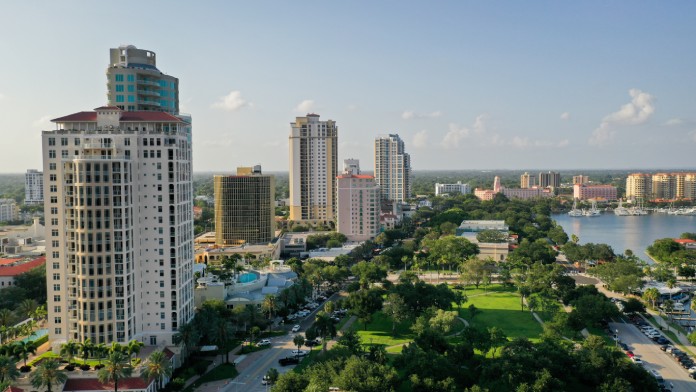Expert Insights
A local St. Petersburg woman is inspiring women around her on a daily basis. Monica Smith, who owns the business Sober Roots, is not only a cancer survivor, she’s also in recovery from addiction. Back in 2001, she moved to St. Petersburg from Bridgeport, Connecticut after becoming a single mom at the age of 17, experiencing homelessness, and developing a drug addiction. Monica got sober in 2012 and has been helping others ever since. She worked at a women’s clinic until 2020, when she learned she had colon cancer. But ever the fighter, Monica went through a surgery and chemotherapy treatments – she remains cancer-free today.
~ Rita Milios
How Expensive is Drug Rehab in St. Petersburg?
Several variables can affect the cost of alcohol or drug rehab in St. Petersburg. Some of them include:
Treatment setting: Inpatient rehabilitation is generally more costly than outpatient due to room and board expenses.
Rehab facility amenities: Facilities that offer luxury amenities and services typically cost significantly more than those that provide standard services.
Length of treatment program: A 30-day program will cost less than a 90-day program.
Whether a facility accepts insurance and the type it accepts: Health insurance can partially or fully cover rehab costs, but each facility accepts different plans.
Whether a facility offers payment assistance: Some drug rehabs in St. Petersburg offer income-based services and other forms of payment assistance that reduce the cost of care.
Whether a treatment center receives federal, state, or non-profit funding: Facilities that get public subsidies often provide lower-cost services than privately funded facilities.
If you feel that drug or alcohol rehab in St. Petersburg is out of reach because you do not have the resources to pay for treatment, you can still get help. You may qualify for low-cost services for people in financial distress. If you have public or private health insurance, you can also use your plan to pay for care.
Are There Low-Cost and Free Drug Rehab Centers in St. Petersburg?
State-funded St. Petersburg detox centers and alcohol rehabs provide addiction services at little to no cost for people experiencing financial difficulties. These treatment centers receive funding from the State of Florida as well as federal sources in some cases. Some non-profit facilities also offer low-cost and free services to persons who lack housing and individuals with low incomes.
To qualify for reduced-cost services at state-funded St. Petersburg drug rehabs, you must show proof of income and proof of legal Florida and United States residency. Be aware that state-funded addiction treatment centers receive hundreds and even thousands of applicants annually, so there may be a waitlist at your chosen facility.
Do Medicare and Medicaid Cover Drug and Alcohol Rehab?
Yes, Medicare and Medicaid cover drug and alcohol rehab in St. Petersburg. But be aware that if you have one of these types of insurance, not all facilities accept it. Furthermore, your coverage can vary based on the type of plan you have and whether the services you need are considered reasonable and necessary. Medicare and Medicaid also cover mental health services, so if you need therapy for co-occurring disorders, your plan will partially or fully cover your care.4, 5
Does Private Insurance Cover Addiction Treatment?
In most cases, yes. The Affordable Care Act requires private insurers to cover essential behavioral health services, which include addiction and mental health treatment. The Mental Health Parity and Addiction Equity Act also stipulates that behavioral health coverage limits cannot be any more restrictive than limits on other essential health benefits. Under these laws, you cannot be denied coverage because you have a pre-existing substance use or mental health disorder. Your benefits must also begin on the day your coverage starts.6, 7
If you have private insurance and would like to learn more about your behavioral health benefits, you can call the number on the back of your insurance card to speak with a benefits representative.

How Does St. Petersburg Compare in Alcohol and Drug Use?
Choosing the right rehab facility for your needs is a big decision. There are 100 accredited alcohol and drug rehab centers in Saint Petersburg.1 Many facilities in the city offer unique, targeted treatment programs for men and women, teens, LGBTQ+ individuals, veterans, and other special populations. If you need help paying for care, most local treatment centers accept multiple types of insurance, and several offer financial assistance to make help accessible for everyone.
St. Petersburg is located in Pinellas County, Florida, where substance abuse has been a serious issue for many years. Noteworthy alcohol and drug use statistics in the St. Petersburg area include:1, 2, 3
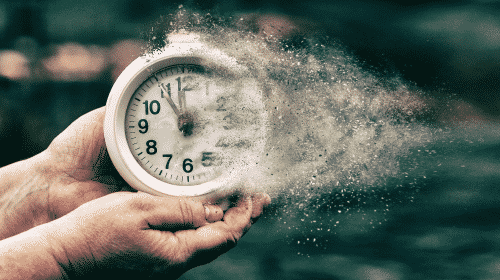
From 2015 to 2019, drug-related overdose deaths in Pinellas County increased by 136%.
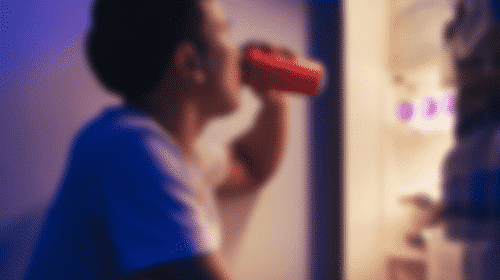
From 2017 to 2019, overdose-related fatalities increased from 256 to 423.
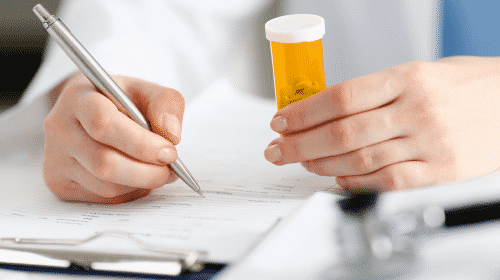
In 2017, an estimated 16% of Pinellas County residents reported using heroin, cocaine, or methamphetamine.

In 2018, roughly 52% of Pinellas County high school students and 31% of middle school students reported using alcohol or illicit drugs at some point in their lives.
In 2017, roughly one out of every 10 Pinellas County adults reported using prescription pain relievers without a prescription or using them in a way not sanctioned by a doctor.
Drug and Alcohol Laws in St. Petersburg
Marchman Act: If someone you love is living with addiction, this Florida law allows you to file a petition to place that person into treatment. You can do so either in compliance with or against that person’s will under specific circumstances. The act encourages people to pursue voluntary rehab, but many people with substance use disorders may not be in a state of mind to make sound decisions about their health. If you truly feel that someone you love needs help, this law allows you to get help for that person, regardless of whether they believe they need treatment.19
Addiction Treatment for Non-Violent Offenders: If you’ve been arrested for a first-time, non-violent, drug-related crime in Pinellas County, addiction treatment rather than incarceration is an option under this law. Regular court appearances, therapeutic services, random drug screenings, and community supervision are required under this law. Upon completion of a prescribed program, you can petition the court for dismissal of charges or early termination of probation.20
Good Samaritan Overdose Prevention Law: If you, acting in good faith, report a suspected overdose to the police or emergency medical personnel, this law protects you from arrest or prosecution for possession of illicit substances or paraphernalia. This holds true whether you call 911 for yourself or someone else. Even if you are on probation or parole, this statute grants you from penalization for a violation.21
Whatever your treatment needs may be, there are accredited drug and alcohol rehab centers in St. Petersburg or the surrounding areas that can help you jumpstart your recovery.
If you need assistance finding the right program for yourself or a loved one, please call
800-681-1058
(Who Answers?)
.
Choosing the Right Level of Care
There is no one-size-fits-all approach to substance abuse treatment, as each person’s situation and recovery needs are unique. Addiction care encompasses several steps, also known as a continuum of care, which you’ll move through over time.
This continuum begins with a pre-treatment assessment with an addiction expert, who will thoroughly evaluate your addiction and mental health status. Your provider will then use your assessment results to recommend the best type of care for your needs.
Medical Detox
Medical detox is a pre-treatment program designed to allow you to withdraw from toxic substances as safely and comfortably as possible. Because substance abuse changes the way your brain and body function, ceasing alcohol and/or drug use suddenly could lead to highly distressing side effects.
Alcohol, opioid, benzodiazepine, and barbiturate withdrawal symptoms can be dangerous and potentially fatal without proper medical care, which may include medications and IV fluids. If you have a history of using these substances, you’ll likely need to undergo medical detox before beginning a structured program.
Inpatient Drug Rehab in St. Petersburg
Inpatient St. Petersburg drug rehabs provide a stable, immersive, and highly structured environment where recovery is the primary focus of daily life. Inpatient programs typically last anywhere from 30-90 days and require you to live at the facility for the duration of your program.
In some cases, inpatient programs may last longer than three months as longer residential stays often improve outcomes significantly.8
Step-Down Care
After completing inpatient rehab, many people move on to what’s known as a “step-down” program. These are outpatient programs, which allow you to live at home or in supportive housing while you participate in treatment. Depending on your needs, your provider may recommend one of the following three outpatient intensity levels:
Standard outpatient treatment: These programs provide the least intensive level of addiction care and typically include group and/or individual counseling once or twice per week. Medication management, drug and/or alcohol testing, and substance abuse education are often part of standard outpatient programs, too.
Intensive outpatient substance abuse treatment (IOPs): These outpatient rehab programs also provide several hours of therapy per week, but not as many as PHPs. You’ll participate in three to five weekly sessions, which will include individual and/or group therapy. Generally, IOPs are more flexible than PHPs because they do not require as significant a time commitment. Many programs offer morning or evening sessions to accommodate people with work, school, or family commitments.
Partial hospitalization programs (PHPs): These highly structured outpatient programs provide several hours of weekly therapy spread out over five to seven weekly treatment sessions. Because PHPs require a considerable time commitment, you may need to take time off work or school to participate.
Aftercare and Relapse Prevention
Finishing your program is a major accomplishment. But addiction recovery is a lifelong process that often requires ongoing support for months or even years after treatment concludes. When you’re ready to transition back to your day-to-day life, you’ll likely encounter stressors and triggers that may challenge you. Having a solid aftercare plan in place can help you avoid relapse and stay strong in long-term recovery.
While engaged in your program, your providers will likely collaborate with you to design an aftercare program that meets your unique needs and preferences. Common relapse prevention resources include:11, 12
- Ongoing individual and/or group therapy
- 12-step recovery support groups like Alcoholics Anonymous (AA) or Narcotics Anonymous
- Non-12-step recovery support groups like SMART Recovery
- Sober-living or transitional housing, which provides a supportive, substance-free living environment that may include counseling to help with your transition back to daily life
- Medication management, which ensures you continue receiving the correct dosage of any medications you need for substance use and/or mental health disorders
How to Choose the Right St. Petersburg Rehab for You
Selecting an alcohol or drug rehab in St. Petersburg is a big decision and one you should not take lightly. Some factors to consider when choosing between St. Petersburg detox centers and rehab facilities include:14
- Program cost: Do you have health insurance? Does the facility accept your insurance plan? How much can you afford to pay out of pocket for services? Do you need financial assistance to pay for rehab, and if so, does the facility offer that?
- Location: Do you prefer an urban setting or something more remote? Would you prefer to travel for care or get treatment close to home where your family can support you?
- Features and amenities: Do you want private accommodations? Access to recreational facilities? Access to WiFi and computers for non-negotiable work needs? Would you benefit from nutritional guidance and balanced, healthy meals?
- Treatment approach: Do you need inpatient or outpatient care? Do you want access to holistic therapies, such as meditation, yoga, animal therapy, or nature therapy? Might a faith-based approach support your healing? Might you benefit from a gender- or identity-specific approach?
- Visitation allowance: Would you benefit from the opportunity to schedule visits with loved ones while in care?
What to Look for in a Quality Drug Rehab
As you research St. Petersburg drug rehabs, keep in mind that quality programs share certain qualities. These qualities ensure treatment efficacy and adherence to the highest standards of care:15
Program Accreditation
As you weigh your options, make sure the facilities you consider are certified or licensed by the State of Florida. It’s also a good idea to choose a facility that holds accreditation from a national compliance organization, such as The Joint Commission (JCAHO) or the Council on Accreditation of Rehab Facilities (CARF).
Personalized Treatment Planning
Addiction treatment should never take a one-size-fits-all approach, as each person’s situation, condition, needs, and preferences are unique. Look for programs that perform extensive assessments to identify the appropriate level of care for your diagnosis, needs, and preferences.
Credentialing of Staff
In the United States, addiction programs are regulated by each state, which means staff must have the proper licensing and/or certifications to provide treatment. To obtain the proper credentials, both addiction and mental health professionals must undergo extensive training and complete a prescribed number of practice hours.
Low Patient-to-Staff Ratio
St. Petersburg alcohol rehabs that have low provider-to-patient ratios often provide more attentive care. Because the staff at these facilities do not have to spread their attention across many patients at once, they can better support and care for each person in treatment.
Evidence-Based Addiction Treatment
Before deciding on a program, make sure the facility uses evidence-based addiction treatments. Evidence-based therapies are proven effective in the care of substance use disorders, and quality programs use more than one type of proven therapy.
Aftercare Support
Long-term addiction recovery often requires ongoing support, counseling, or coaching for several months or even years after acute treatment concludes. This type of support is called aftercare or continuing care, and quality facilities provide individualized aftercare planning as part of their approach.
Family Involvement in Treatment
Programs that provide family therapy and/or counseling may be beneficial for both you and your loved ones, as family can play an integral role in your recovery. Such programs help family members understand how behaviors can influence substance use and how alcohol and/or drug use may stem from larger family issues.
Should You Travel for Drug and Alcohol Rehab in St. Petersburg?
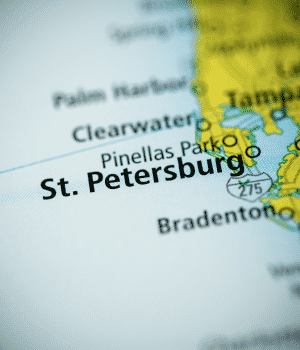 Traveling for addiction treatment at a drug or alcohol rehab in St. Petersburg may be right for you if:
Traveling for addiction treatment at a drug or alcohol rehab in St. Petersburg may be right for you if:
- You want to separate yourself from your everyday living situation to avoid people, stressors, or triggers that may complicate your recovery.
- You have the financial means to travel.
- Your health insurance covers treatment at St. Petersburg drug rehabs.
- You want to work through recovery in a warm location near the beach.
St. Petersburg is home to several neighborhoods, many of which are excellent locations to consider for addiction treatment. Areas of the city to consider include:18
- Old Northeast: This area of town is known for its thousands of historic buildings, a variety of city landmarks, and gorgeous waterfront views. Brick streets, granite curbs, white sand beaches, and many walking and biking trails further enhance the undeniable charm of this historic neighborhood.
- Downtown: The heart of St. Petersburg is known for housing the renowned Haslam’s Bookstore, as well as dozens of art galleries, museums, and Tropicana Field, the home of the Tampa Bay Rays. This waterfront area is also packed with walking and biking trails, parks, and eateries that contribute to its lively feel.
- Grand Central District: Situated just west of downtown, this neighborhood is packed with eclectic local shops, galleries, unique eateries, and green spaces. The area is also home to the American Stage Theatre Company, which is the bay area’s most critically acclaimed, longest-running professional theatre company.
Resources
- Floridahealth.gov. (2019). Pinellas County Substance Abuse Profile.
- Florida Department of Health. (n.d.). Substance Use Dashboard.
- Florida Department of Health in Pinellas County. (2018, June). Pinellas County Community Health Assessment 2018.
- Medicare.gov. (n.d.). Mental health & substance use disorder services.
- Medicaid.gov. (n.d). Substance Use Disorders.
- Substance Abuse and Mental Health Services Administration. (n.d.) What Does the Affordable Care Act Mean for Behavioral Health?.
- National Library of Medicine, American Journal of Public Health. (2017). The Affordable Care Act Transformation of Substance Use Disorder Treatment.
- Greenfield, L., Burgdorf, K., Chen, X., Porowski, A., Roberts, T., & Herrell, J. (2004). Effectiveness of long-term residential substance abuse treatment for women: findings from three national studies. The American Journal of Drug and Alcohol Abuse, 30(3), 537–550.
- National Institute on Drug Abuse. (2020, September 18). Principles of Effective Treatment.
- National Institute on Drug Abuse. (2018). Principles of Drug Addiction Treatment: A Research-Based Guide (Third Edition) Types of Treatment Programs.
- National Institute on Drug Abuse. (2022, March 22). Treatment and Recovery.
- McKay J. R. (2009). Continuing Care Research: What We Have Learned and Where We Are Going. Journal of Substance Abuse Treatment, 36(2), 131–145.
- National Association of Addiction Treatment Professionals. (n.d.). NAATP Treatment Selection Guide.
- Substance Abuse and Mental Health Services Administration. (1997). Treatment Improvement Protocol (TIP) Series, No. 24. Chapter 5–Specialized Substance Abuse Treatment Programs.
- McGovern, M. P., & Carroll, K. M. (2003). Evidence-based practices for substance use disorders. The Psychiatric Clinics of North America, 26(4), 991–1010.
- U.S. Department of Health and Human Services. (2019, November). Credentialing, Licensing, and REimbursement of the SUD Workforce: A Review of Policies and Practices Across the Nation.
- The National Association of State Alcohol and Drug Abuse Directories. (2012, December). State Regulations on Substance Use Disorder Programs and Counselors: An Overview.
- StPetersburg.com. (n.d.). St. Petersburg Neighborhoods.
- Connecticut General Assembly Office of Legislative Research. (2012). Florida Law on Substance Abuse Treatment.
- Office Of The State Attorney Sixth Judicial Circuit of Florida. (n.d.). Drug Court.
- The Florida Legislature. (2021). The 2021 Florida Statutes. Chapter 893, Drug Abuse Prevention and Control.

